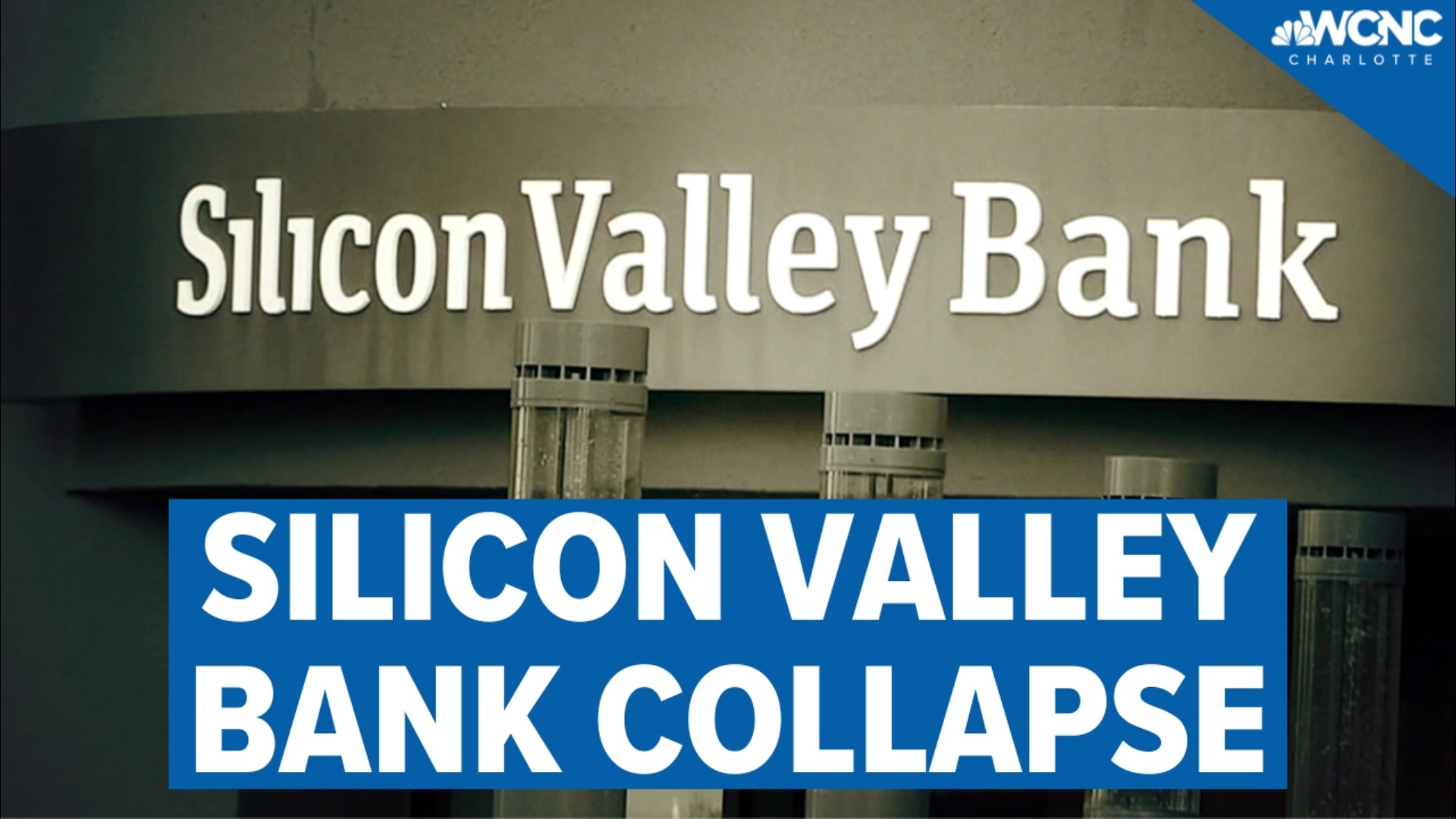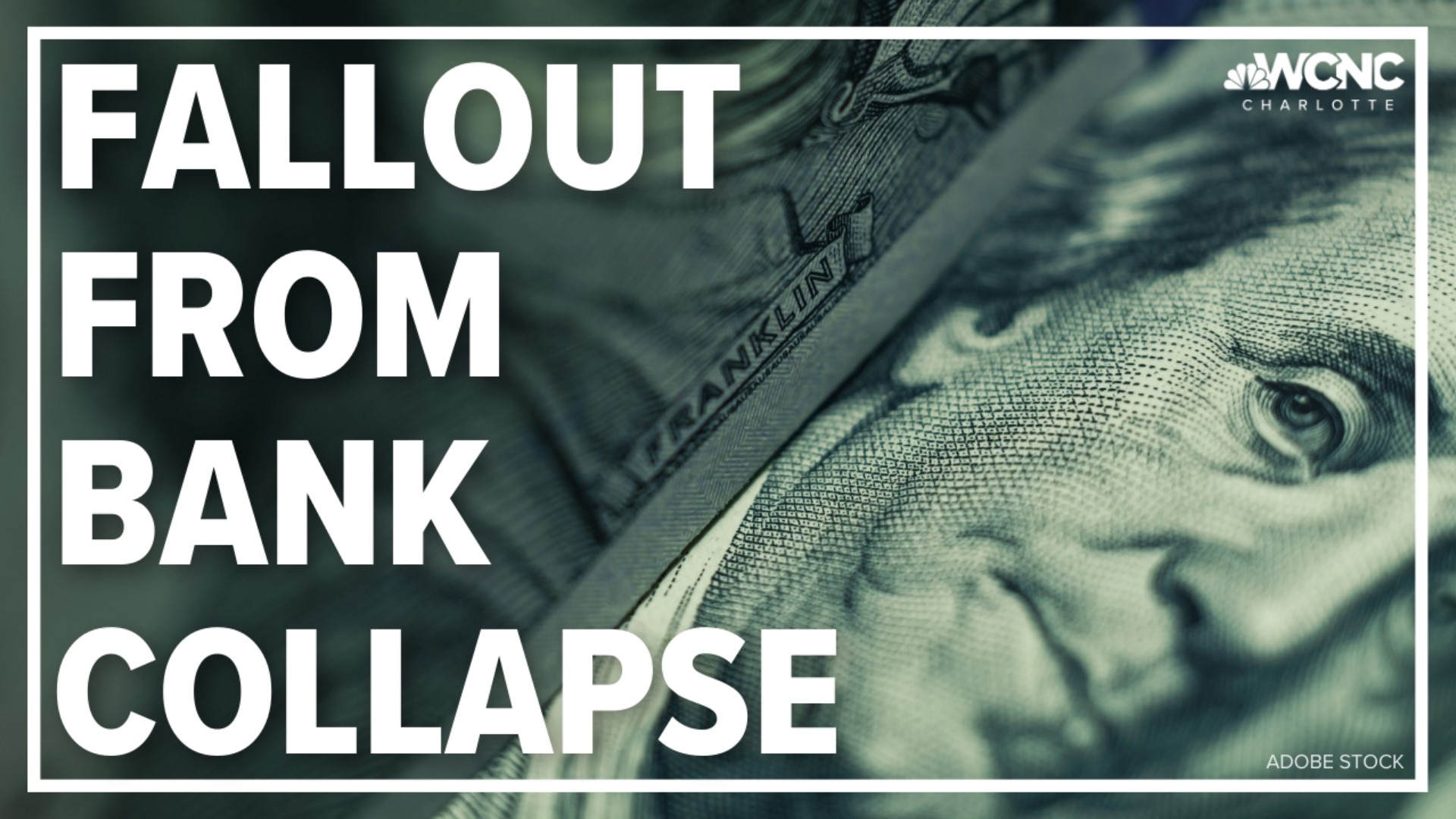CHARLOTTE, N.C. — President Joe Biden is asking people to not lose faith in the banking system following the collapse of Silicon Valley Bank (SVB) and Signature Bank over the weekend.
The failure of SVB is the second-largest bank failure in U.S. history. Despite this, the federal government is assuring depositors they will be protected and their money is safe.
SVB worked closely with startups and loans for tech ventures.
Christine Edwards is the founder of Civility Localized, a Charlotte-based business that works with local and state governments to enhance their community engagement.
“It was very scary to think that a bank that is hosting so many startups and small businesses, and really any bank… going under like that," Edwards said. "When it's unexpected, it's going to be scary."
She said she was on alert after learning of the bank collapse.
“I definitely was checking on my bank accounts, and thinking about the next payroll, and the next one after that,” Edwards explained.
Thankfully she learned the company she uses for payroll does not use SVB to fund customer payroll services.
“I was relieved, but at the same time, kind of alarmed that it would even affect me,” Edwards said.
U.S. Rep. Jeff Jackson, who represents North Carolina's 14th District in Mecklenburg and Gaston counties, shared more about what caused the shutdown.
“There was a bank in California that lost a bunch of money and then a bunch of the depositors got scared. They all went to get their money out and it was a classic run on the bank. The federal government, through the FDIC, went in three days ago, and closed the bank,” said Jackson.
He also shared this tweet breaking down what happened.
Michael Walden, a distinguished professor emeritus at North Carolina State University, said the institution put a lot of investments in tech.
“Since the middle of last little last year, the tech sector has been contracting. They now realize they over-expanded. So a lot of these investments were not paying off like the bank expected,” Walden explained.
The federal government has taken steps to protect depositors beyond the $250,000 insured limit.
“All of the depositors will be made whole. Not the shareholders, the people who own stock in the bank, they're getting wiped out, because the bank failed. The management… they're done,” Jackson said.
Walden said it’s important for people to understand it is not a problem with the entire banking system.
“The real problem here is what's called 'contagion.' That you [spread] the fear that was developed from this one bank collapsing to all other banks," Walden explained. "Even healthy banks and people go and try to get their money out."
Lawmakers are working to prevent a wider financial crisis.
"All you need to know today is that your deposits in your bank are safe," Jackson said. "That's the mission of today: make sure that we don't have a run on the banks so that we can have a political debate and not a financial crisis."
Jackson said lawmakers will examine the amount of risk smaller and regional banks are able to take.
“There were some changes a few years ago, that loosened up some regulations that allowed them to take more risks," Jackson said. "And I think those changes will now be under extreme scrutiny."
Edwards said this is an opportunity for businesses to take a look at how they handle their finances.
“So not putting all your eggs in one basket, especially as a business owner," Edwards advised. "Making sure that you have different accounts for different needs within your business."
Edwards said she would like to see more financial education services made available to small businesses so companies like her have the tools they need to make the best decisions.
Contact Jesse Pierre at jpierrepet@wcnc.com or follow her on Facebook, Twitter and Instagram.


